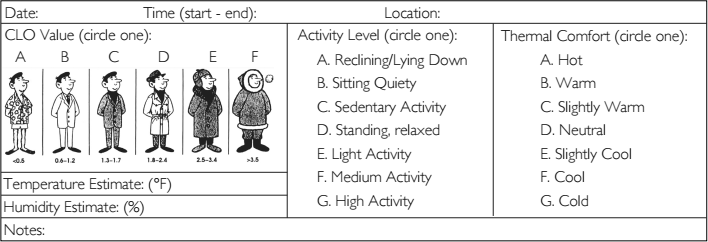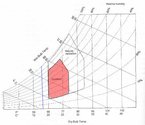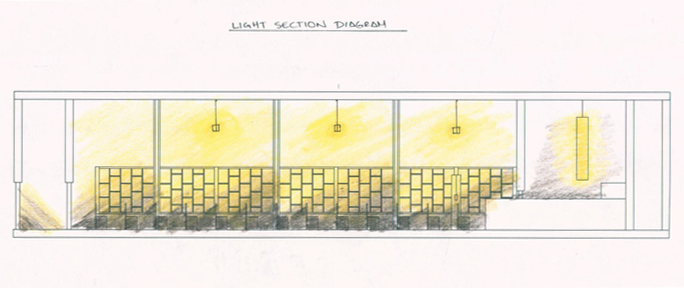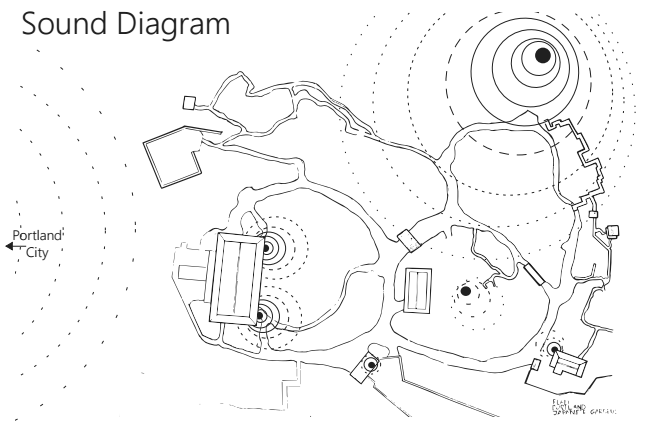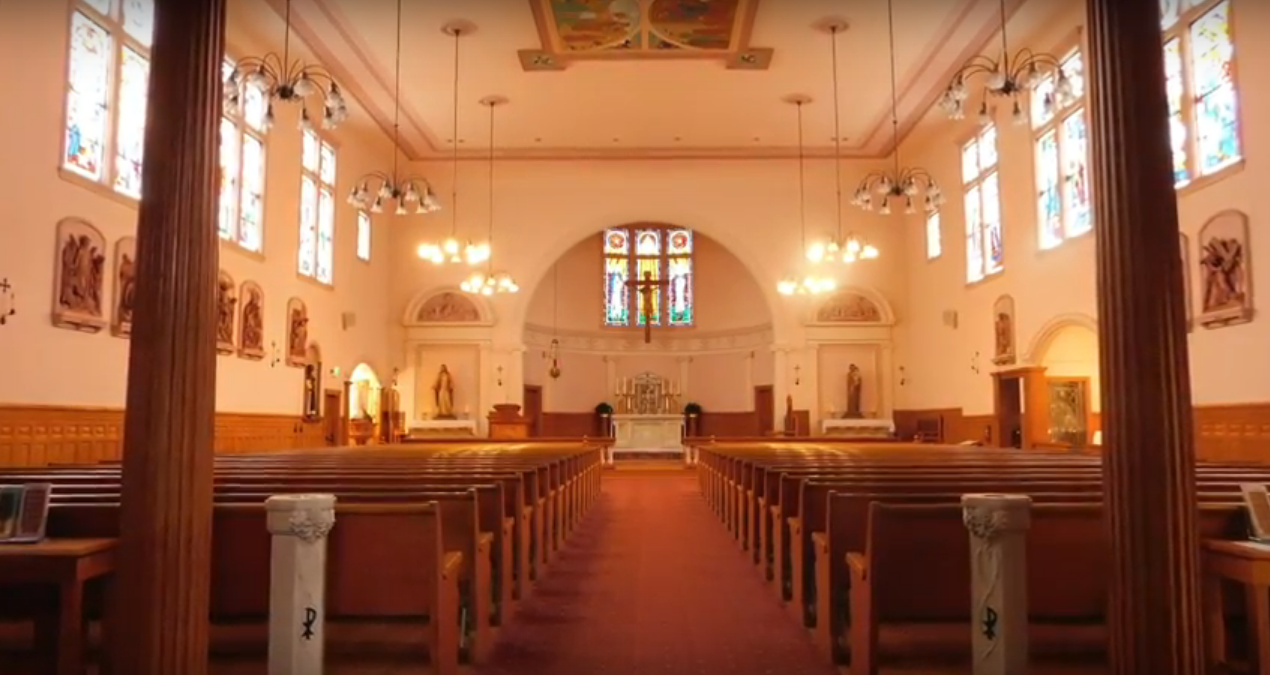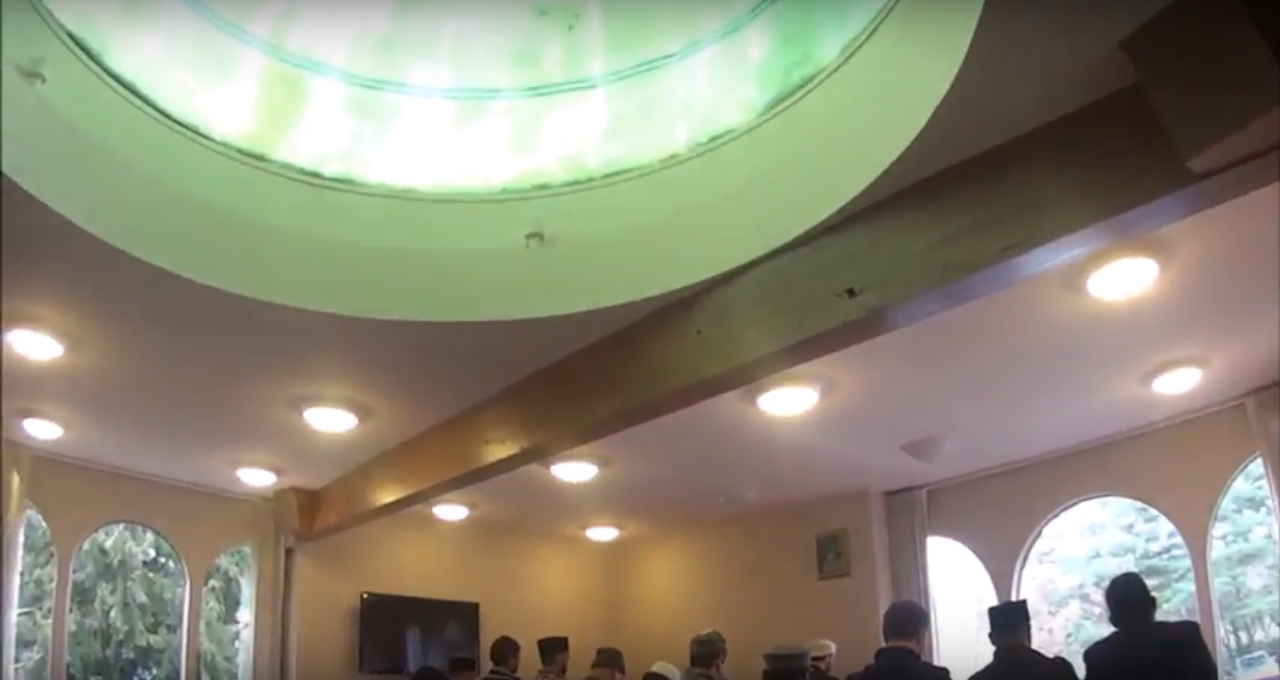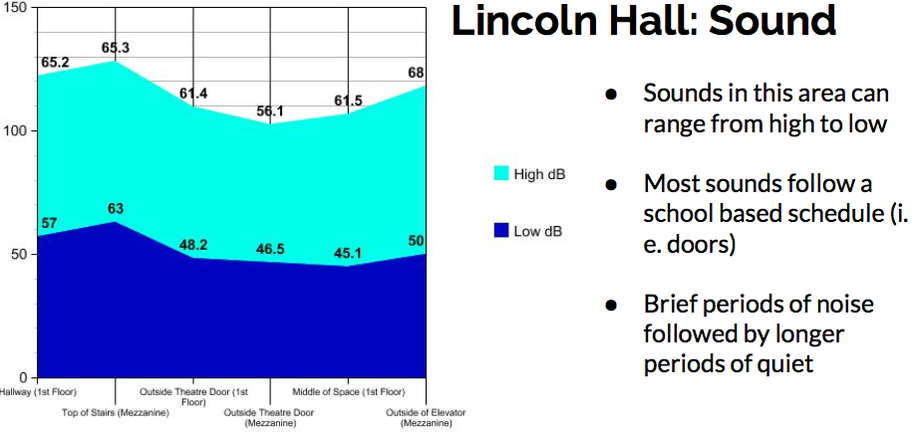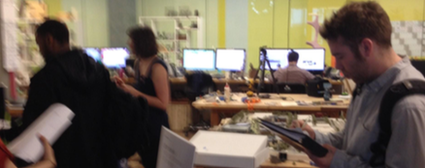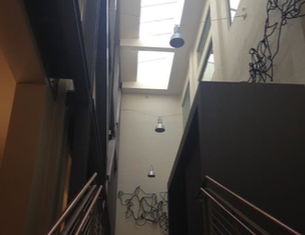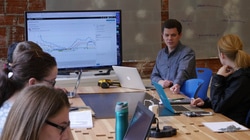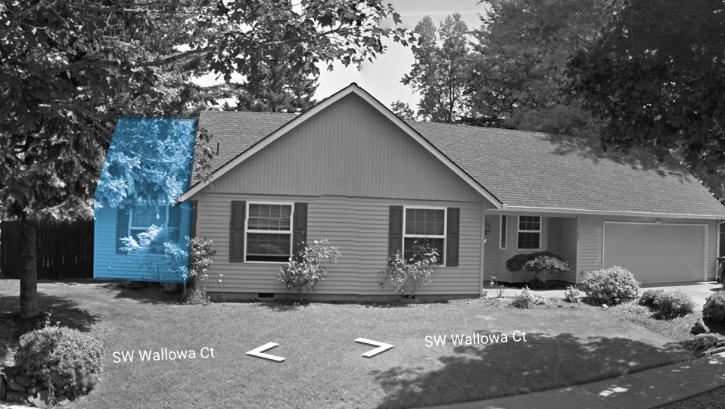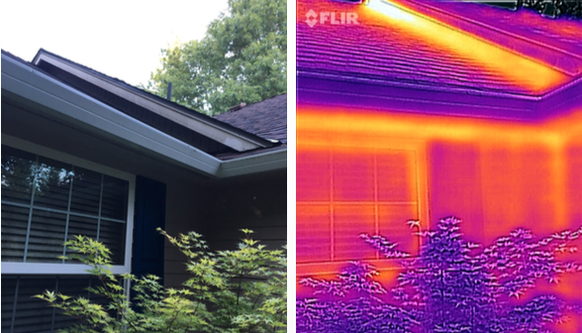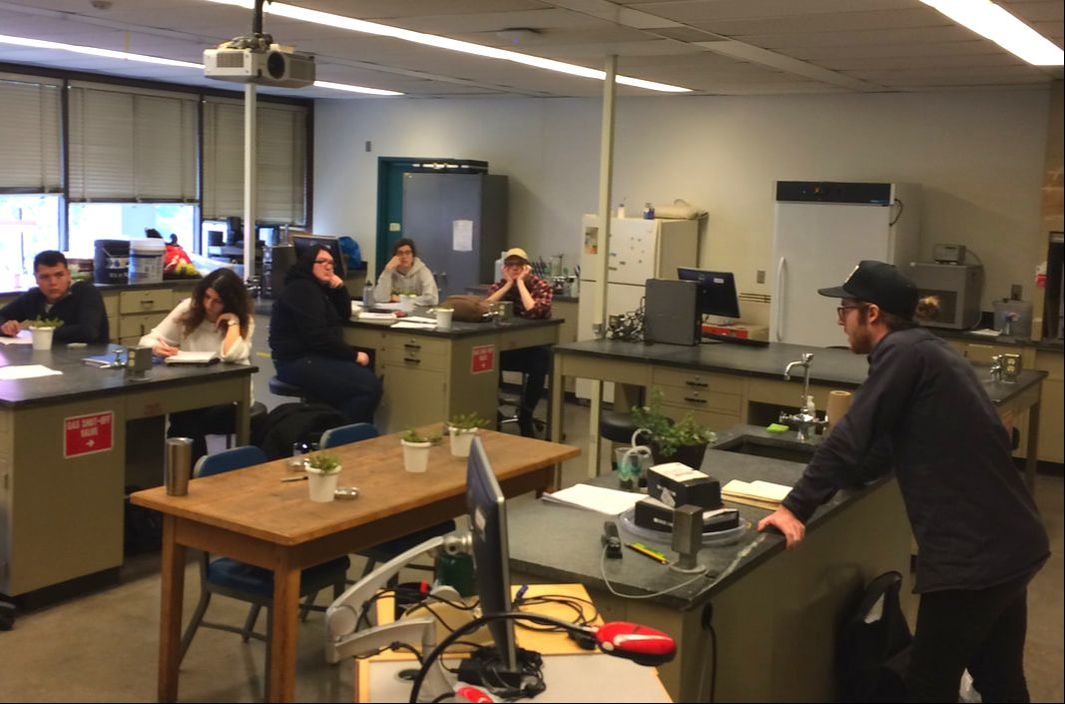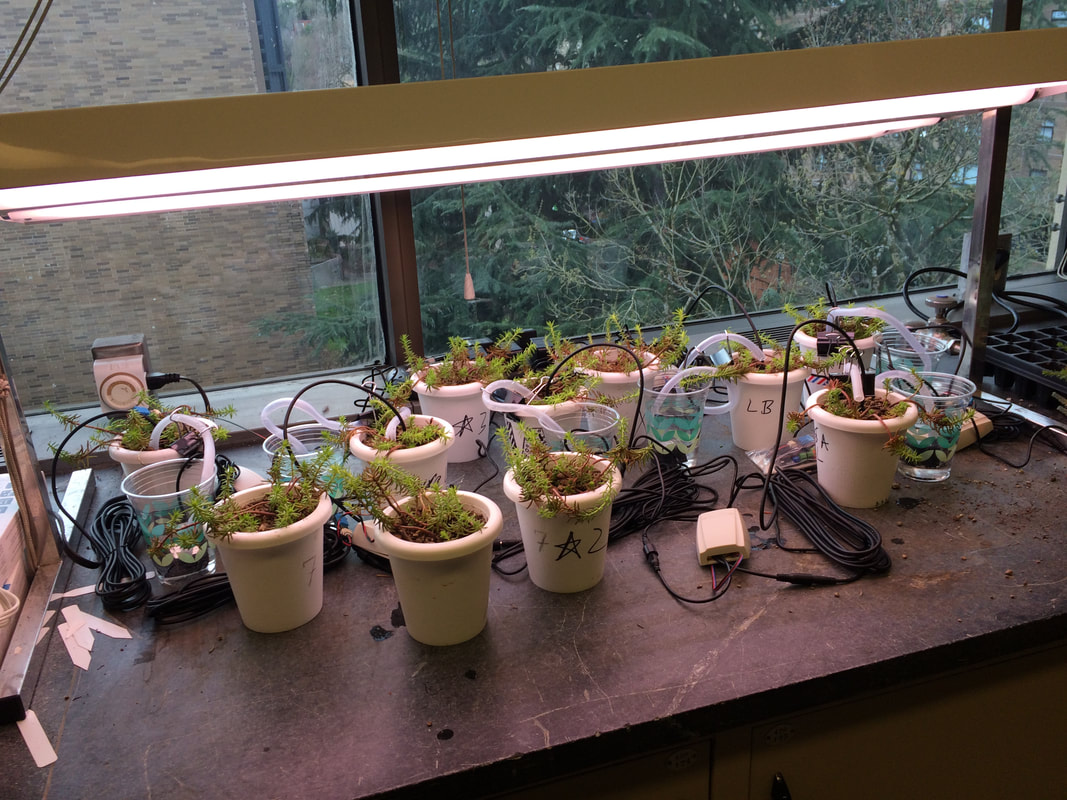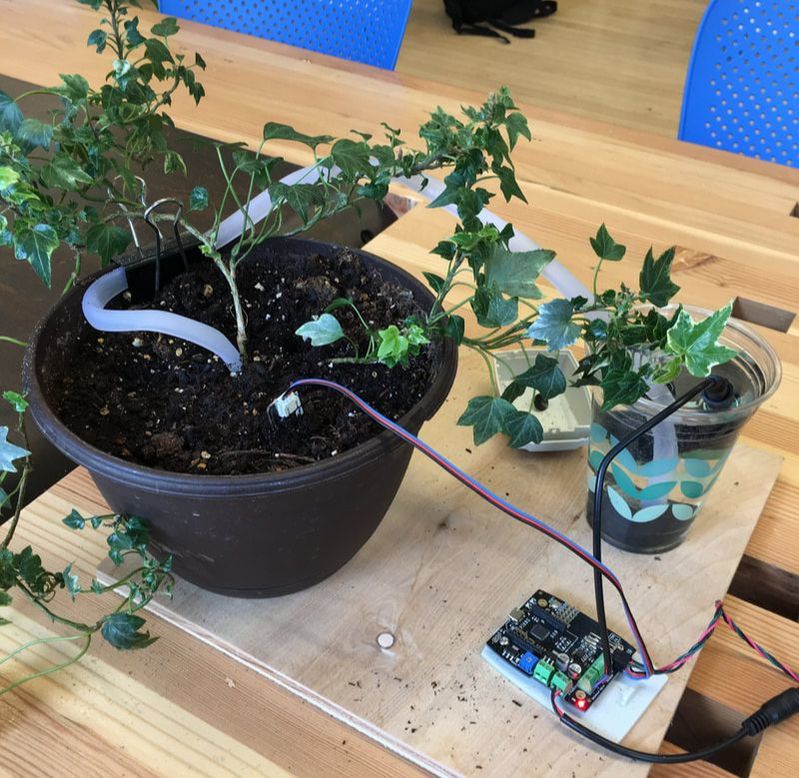ACTIVE LEARNING
ARCH101 - Thermal ComfortTaught by tectonics professor and BUILT faculty fellow Travis Bell, this primary architecture course is required of architecture majors and open to students of any major. BUILT partnered with the course to develop a thermal comfort activity, in which students gain basic hypothesis, research, and data analysis experience in relation to human thermal comfort through the use of personal temperature/relative humidity data loggers. In this way, students learn firsthand how many factors influence thermal comfort and why it is an important part of human-centered design. This partnership provides the opportunity to reach the greatest number of architecture students at the beginning of their eduction and provide them with research experience inspiring further building science exploration as they continue their studies.
|
ARCH231 - Building Phenomena ObservationAn architectural history and theory course (the second in a three-term sequence) taught by BUILT faculty fellow Anna Goodman which is open to all majors and required for architecture majors. As this part of the sequence focuses on religious, cultural, and ritual spaces, students are tasked with visiting various temples, churches, mosques, gardens, etc. around the Portland area and documenting their unique phenomena through diagrams as well as pictures and video. Through this exercise, students come to understand how important various building phenomena are to religious spaces and ritual practices. The first-hand documentation gives students the ability to analyze the existing phenomena in their building and compare it to the "actual" phenomena desired and intended for spaces of the religion/ritual.
|
ARCH232 - Building Performance MeasurementAn architectural history and theory course (the third in a three-term sequence) taught by BUILT faculty fellow B.D. Wortham-Galvin which is open to all majors and required for architecture majors. Students in this course are tasked with collecting building performance measurements on assigned buildings in Portland, Oregon from different historic periods. Through the use of various tools, the groups observe and collect data relating to sound, surface temperature, temperature, humidity, and lighting levels. Not only does this provide second-year students with hands-on research in the field, but further analysis and synthesis of collected data allows for a richer understanding of the developments in building science and technologies throughout architecture's history and how each has effected human comfort in the built environment.
|
ARCH299 - The Secret Life of BuildingsA BUILT supported course, The Secret Life of Buildings is a course held in the lab which is centered around various topics of building science and providing beginner level undergraduate students with research experience and the opportunity to conduct research on a question of their own proposal. Taught by tectonics professor and BUILT director Corey Griffin, and using existing buildings as laboratories, students gain an understanding of the various definitions and metrics used to evaluate the performance of a building, learn how to use data loggers to measure quantitative data about buildings, conduct small scale experiments to better understand how buildings work, and thus ultimately gain exposure to research-based design and the role of quantitative data in human-centered design.
|
HON203 - Urban EcologyAn honors course, supported by BUILT and taught by Olyssa Starry, Urban Ecology looks at the urban through the lens of science, taking to the field of the city to explore how science has both shaped cities and how cities shape scientific practice. During the winter 2018 quarter, students looked at trees, water, soil and air as the elements of the urban landscape around us. Students worked with BUILT staff to assemble and code a unit that would automatically water a plant based on available moisture in the soil. This is a response to the more conventional method of watering on a time schedule, which can be wasteful. To tackle this problem, students were introduced to Arduino, an open-source electronics platform based on easy-to-use hardware and software. Arduino boards are able to read inputs - soil moisture - and turn it into an output - watering a plant. Students learned about research related to the ecological systems of Portland, and practice applying the scientific method by planning research projects that add to and critique our understandings of the city.
|

